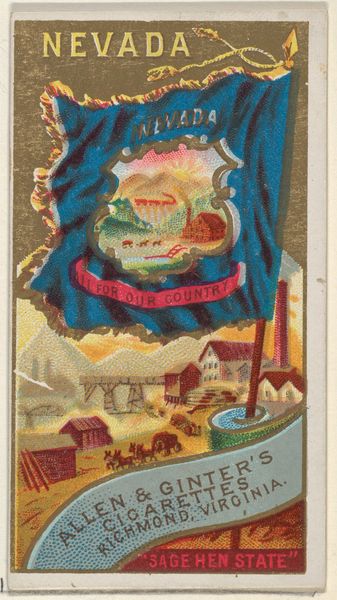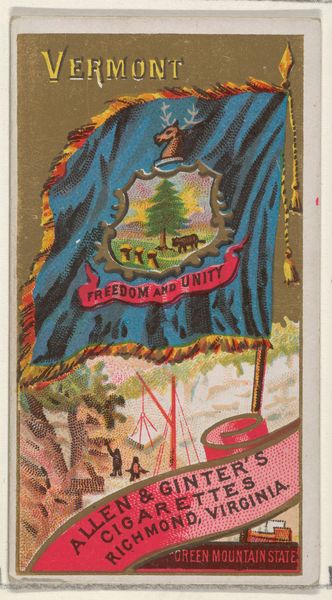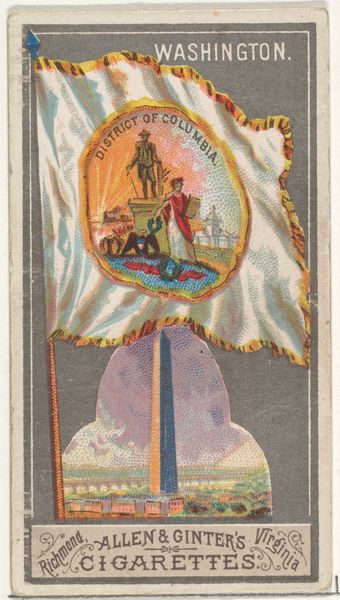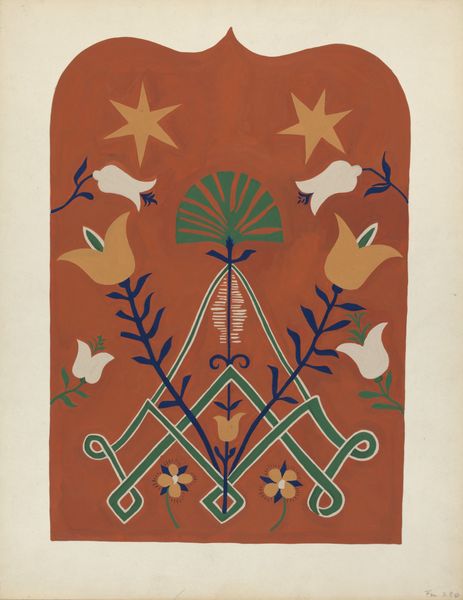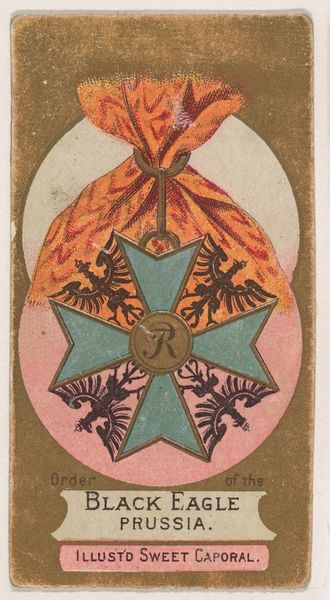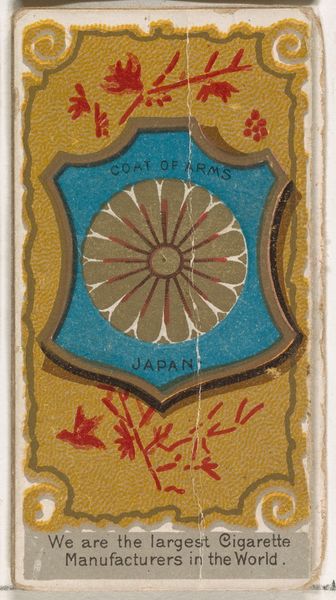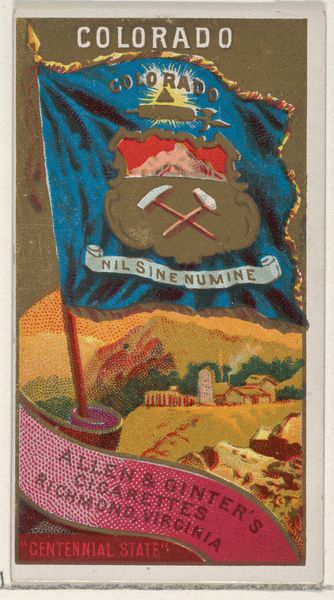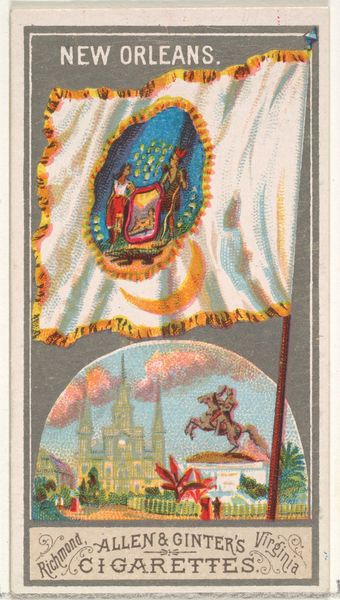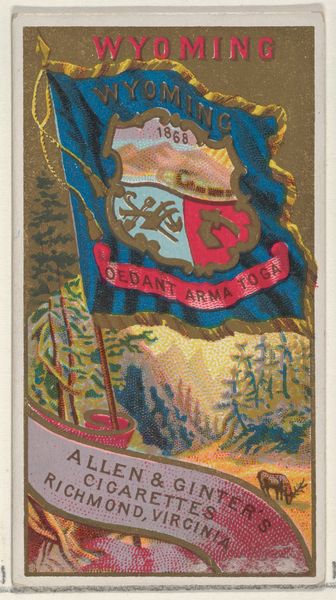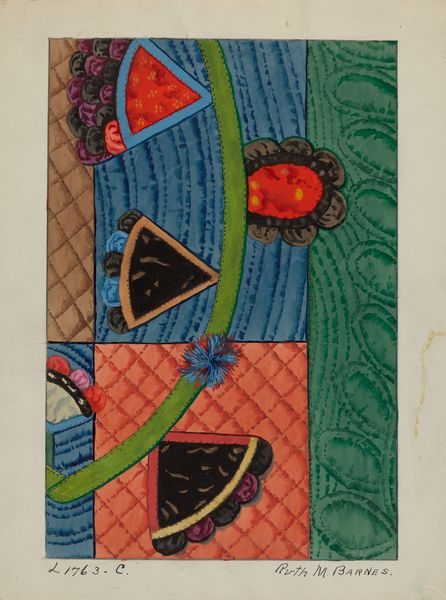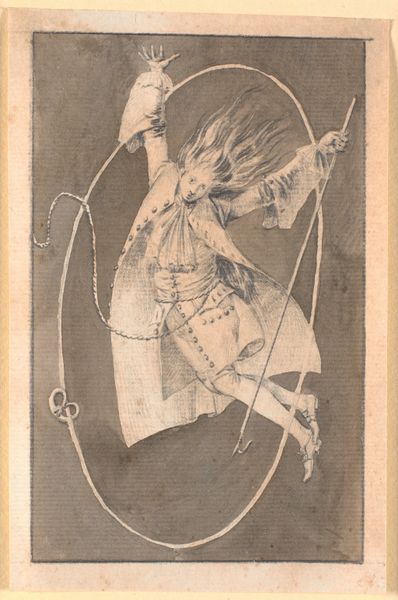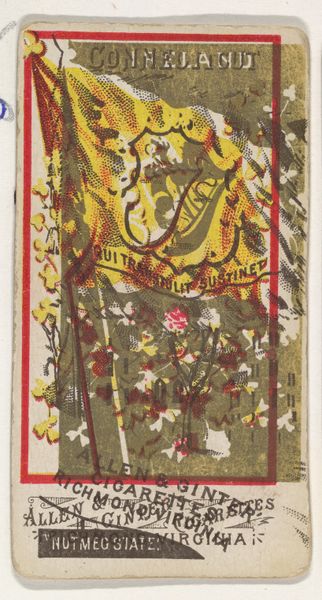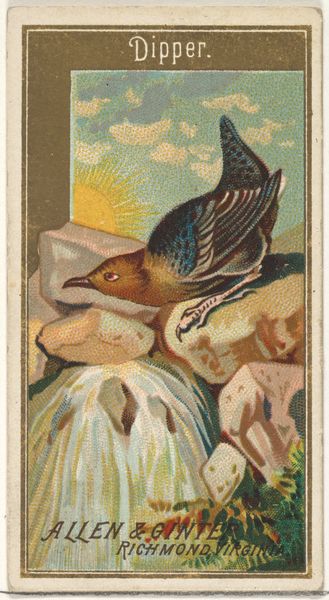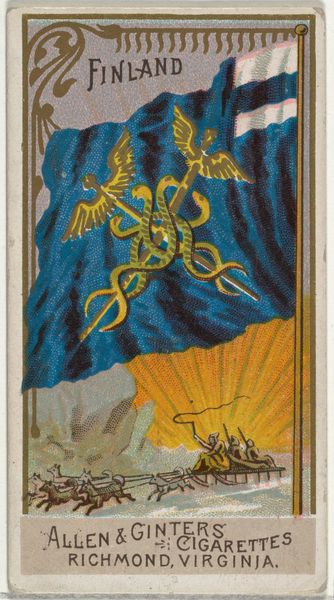
G. Pacheto, President of Bolivia, from the Rulers, Flags, and Coats of Arms series (N126-2) issued by W. Duke, Sons & Co. 1888
0:00
0:00
drawing, graphic-art, coloured-pencil, print
#
portrait
#
drawing
#
graphic-art
#
coloured-pencil
# print
#
coloured pencil
#
men
Dimensions: Sheet: 2 3/4 × 4 1/4 in. (7 × 10.8 cm) Sheet (folded): 2 3/4 × 1 7/16 in. (7 × 3.6 cm)
Copyright: Public Domain
This is a commercial card from around 1900, issued by W. Duke, Sons & Co., and it presents the Coat of Arms of Bolivia. The most striking symbol is the Andean condor atop the shield, a bird revered since pre-Columbian times as a symbol of power and health, linking earthly and spiritual realms. This echoes ancient mythologies where birds are messengers between gods and humans, embodying the spirit's ascent. Below, the central shield encapsulates Bolivia's landscape and resources. The sun, mountains, and flora reflect the nation’s natural wealth. Consider how such symbols are not merely representations but vessels of collective memory. The condor, for instance, appears in various forms across South American cultures, from textiles to pottery, each time adapting to local beliefs. The image invites us to ponder how cultural symbols evolve, retaining core meanings while adapting to new contexts.
Comments
No comments
Be the first to comment and join the conversation on the ultimate creative platform.
